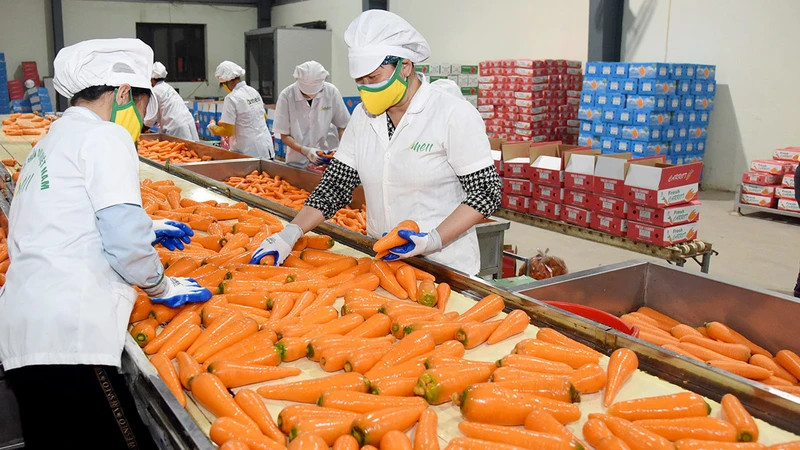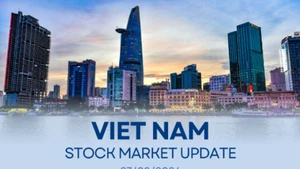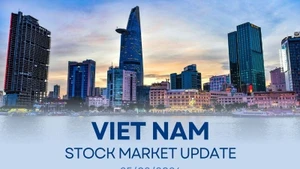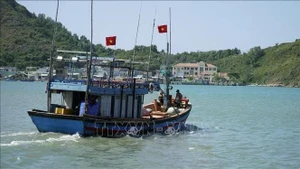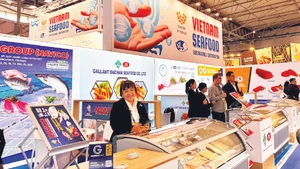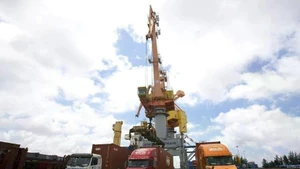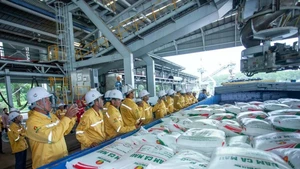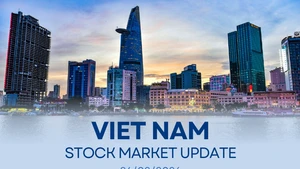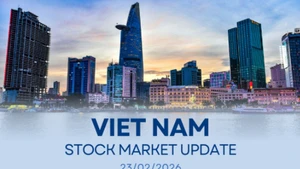The reason is that Vietnamese enterprises still face many difficulties in producing and exporting Halal products, such as high investment costs and limited information about Halal culture, Halal market, and Halal standards.
High demand for Halal goods
Nguyen Minh Phuong, Asia-Africa Market Department under the Ministry of Industry and Trade, said: In 2024, Vietnam's Halal goods export turnover to the Middle East and Africa markets has been estimated at nearly 700 million USD, with exports to the United Arab Emirates (UAE), Saudi Arabia, Egypt, South Africa, and Nigeria accounting for the largest proportion.
About 50% of Vietnam's rice exports to the Middle East and Africa are Halal products.
Halal seafood, agricultural products and processed foods also account for about 30-35% of Vietnam's total food export turnover to this region. However, this is still a small number compared to the actual demand because the Middle East region has a high income and per capita consumption rate, with the majority of the population being Muslims, but food and foodstuffs are almost entirely dependent on imports.
Similarly, in the North African region, the demand for imported food is very high. Currently, Vietnam's main export items to the Middle East and Africa are seafood, rice, pepper, cashews, coffee, and coconut products. Processed foods include poultry, beef, and milk.
In Southeast Asia, Pham The Cuong, Trade Counsellor at the Vietnam Trade Office in Indonesia, shared that Indonesia has the 4th largest population in the world with 87% being Muslims. In 2023, the size of Indonesia's Halal market reached about 279 billion USD. It is forecast to reach 282 billion USD in 2025, accounting for 11.34% of global Halal product spending. This increase is due to high economic growth, boosting Indonesia's consumption and import demand.
In addition, this country has a large middle class of about 50 million people and continues to increase rapidly, which is a driving force for consumption. In 2023, Indonesia's import demand for Halal consumer products reached about 14.6 billion USD.
And Vietnam has many favourable conditions to export Halal products to Indonesia because this is a more lenient market than the US, the European Union (EU), and Japan.
Moreover, Asian culture is close to Vietnam; the close geographical distance helps reduce transportation costs and increase the competitiveness of goods. Vietnamese goods enjoy intra-bloc tariff incentives due to belonging to the Association of Southeast Asian Nations (ASEAN) and having ASEAN free trade agreements (FTAs) with partners and the Regional Comprehensive Economic Partnership (RCEP).
In recent years, Vietnamese goods have gradually asserted their position in the Indonesian market with increasing export turnover thanks to comparative advantages in many agricultural and aquatic product groups. In addition, transportation of Vietnamese agricultural products is convenient because a number of airlines have direct flights from Vietnam to Indonesia.
The Malaysian Halal market is very open to Vietnamese agricultural products and food. According to the General Department of Vietnam Customs, the total export turnover of goods in general between Vietnam and Malaysia in the first 9 months of 2024 reached 10.63 billion USD, an increase of 14.1% over the same period in 2023.
Le Phu Cuong,
Commercial Counsellor at the Vietnam Trade Office in Malaysia
Among agricultural products, it is noteworthy that rice grew by 131.2% and has become a major export item, accounting for 9.8%, ranking third among the largest export items of Vietnam to Malaysia and surpassing all kinds of phones and components (accounting for 8.5%). Along with rice, coffee also had an impressive growth rate of 117.5% over the same period last year.
Removing bottlenecks
According to Le Chau Hai Vu, Director of Consultech Joint Stock Company, Vietnam has strengths in agricultural products and processed foods — products with great demand in the Muslim market. We have a high potential to turn the Halal industry into an important part of the national economy and deeply penetrate the global Halal market.
This potential is thanks to three main factors: strengths in production, export and development of agricultural and food industries; a large export market with 17 signed free trade agreements (FTAs), including many new generation, regional and inter-regional FTAs; and having important policies, strategies and legal foundations shaping the development of the Halal industry.
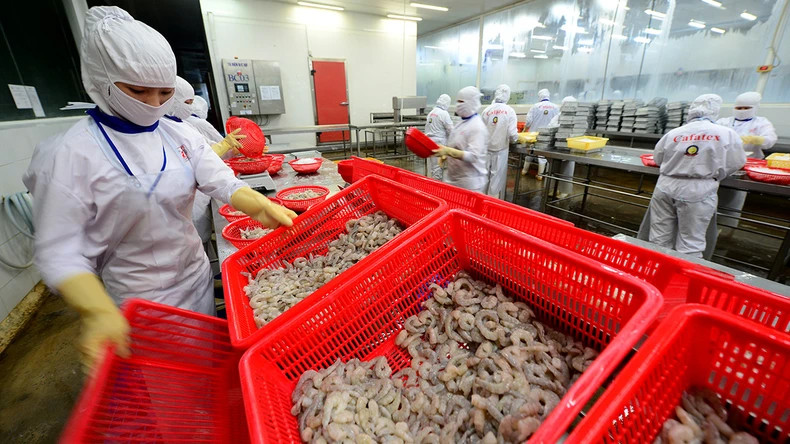 |
| Processing seafood for export at Cafatex Hau Giang Seafood Joint Stock Company. (Photo: ANH TUAN) |
In addition, Muslim countries have a good impression of the policies and economic development, trade and international cooperation as well as the rising investment of Vietnamese enterprises.
However, Vietnam is still not on the list of 30 typical Halal food suppliers in the world. Some possible reasons include that small and medium enterprises do not understand much about the consumer and business culture of Muslim countries, leading to a fear and lack of boldness in investing; encountering many difficulties in certifying Halal products due to many separate standards for each market area, increasing costs; a production system which does not ensure Halal standards; and a lack of human resources and lack of Halal materials.
To address these bottlenecks, Nguyen Thi Ngoc Hang, Marketing Director of the Halal Certification Agency (HCA Vietnam), said: To export to the Halal market, products must be certified Halal by recognised international organisations. Enterprises need to choose a certification organisation that is accepted in the export market.
In addition, businesses also need to pay close attention to the design of packaging, signs, symbols, logos, and product names when exporting to the Halal market.
The name of the product must not be the same or synonymous with a non-Halal product, such as: Hamburger or salted pork; and should not include the names of non-Muslim holidays. At the same time, businesses must regularly update new regulations on Halal globally to facilitate the production and export of Halal products to potential markets.
